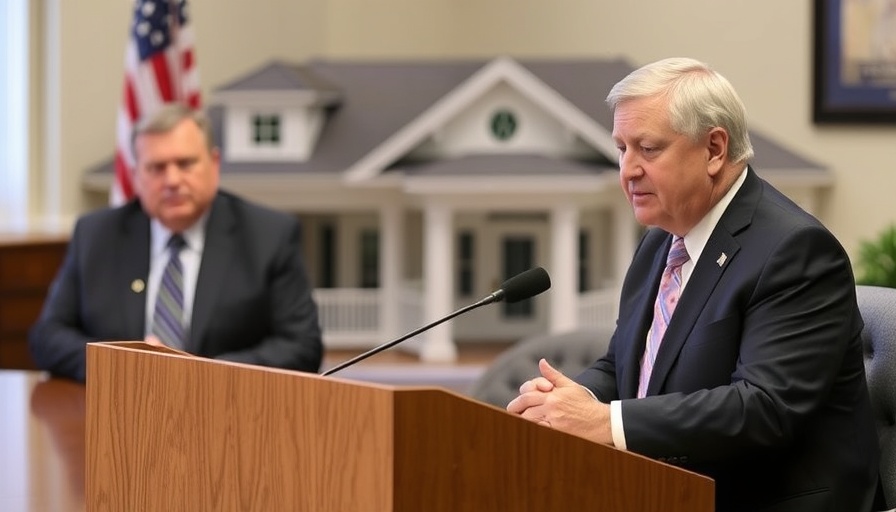
Why FHFA Director Pulte Is Advocating for Lower Interest Rates
In a bold statement, FHFA Director Bill Pulte recently urged Federal Reserve Chairman Jerome Powell to reduce interest rates. On social media, Pulte argued, "Jay Powell needs to lower interest rates – enough is enough. President Trump has crushed Biden’s inflation, and there is no reason not to lower rates. The housing market would be in much better shape if Chairman Powell does this." This rallying cry comes at a pivotal time, as there are intersecting dynamics at play, particularly regarding the health of the housing market.
The Need for GSE Reform and Its Implications
One critical reason behind Pulte's request lies in the potential reform of government-sponsored enterprises (GSEs) like Freddie Mac and Fannie Mae. According to Treasury Secretary Scott Bessent, there's a crucial link between interest rates and the decision to transition these entities out of conservatorship. If high interest rates persist, the administration may hesitate to release these GSEs—an action that could place upward pressure on mortgage rates. As Pulte and the White House push for reform, lowering rates could provide a favorable environment for this transition, particularly as midterm elections loom on the horizon where public perception will matter significantly.
The Scary State of Housing Construction
An alarming aspect to note is that housing construction is currently echoing the recessionary levels seen during the COVID-19 pandemic. The number of new homes being built has dropped, largely driven by the burden of elevated mortgage rates, which dampen builder confidence. As reported in recent job reports, there has been a slight decline in labor within the housing sector. If construction continues on this downward trajectory, it could signal troubling economic times ahead, raising alarms for both builders and potential homebuyers.
Why Lower Rates Could Ease Trade Tensions
Moreover, the impact of lower interest rates extends beyond just housing. In discussions around the ongoing trade war, lower mortgage rates could be seen as a stimulus for economic growth. Affordable financing may lead to increased consumer spending, providing businesses an edge in challenging trade environments. Pulte's advocacy suggests that easing rates could serve multiple purposes: revitalizing the housing market while supporting broader economic stability.
Future Perspectives: What Happens Next?
As anticipation builds, all eyes are now on Powell. If he responds favorably to calls for lower interest rates, we could witness an uptick in housing activity. This could foster a more robust construction sector and, eventually, enhance overall economic conditions. Conversely, inaction may entrench a stagnant market further, raising questions about the overall strategy of balancing inflation control with economic growth. With the midterms approaching and pivotal decisions looming concerning the GSEs, how Powell chooses to navigate these waters will be crucial.
Conclusion: Why This Matters to Us
The advocacy from Pulte illuminates an urgent conversation surrounding housing and economic policy. For homeowners, builders, and buyers alike, understanding the implications of interest rates is vital for decision-making in a fluctuating market. Lowering these rates could indeed breathe life into the housing sector, providing greater accessibility for prospective homeowners eager for stable markets.
 Add Row
Add Row  Add
Add 




 Add Row
Add Row  Add
Add 

Write A Comment